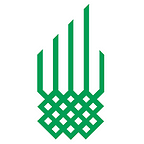University instructors shift to distance learning to help students thrive
In early 2020, universities around the globe suspended in-person classes to protect their students, faculty, and staff from the Coronavirus.
At the University of Central Asia (UCA) School of Professional and Continuing Education, English instructors worked to quickly move their classes online and support their students. As part of the Aga Khan Development Network and supported by the Aga Khan Foundation, UCA is helping expand academic and economic opportunities for Central Asian youth and professionals.
Read on to see how three English instructors in Afghanistan, Kazakhstan, and the Kyrgyz Republic are serving their students and communities during the pandemic.
Abdul Saboor Farid
Faizabad, Afghanistan
When Abdul Saboor Farid first learned about COVID-19, he was overwhelmed and unsure of how he could help. As panic grew in his community of Faizabad, Afghanistan, he wanted to make sure his students and community members knew how they could protect themselves from the virus.
Abdul became the first teacher at UCA’s learning center in Faizabad to start teaching classes online.
“It is important to conduct these classes,” he says. “Otherwise students would fall behind in their education with the few resources they have at home.”
Although Abdul is an English teacher, he’s adding a public health element to his lessons during this time. He keeps up with the latest guidelines from the World Health Organization and shares them with his students. His students then share the guidelines with their own families.
Through his work at UCA, Abdul is helping his community stay informed and healthy.
Kalamkas Bitayeva
Tekeli, Kazakhstan
When the virus reached Kazakhstan in mid-March 2020, Kalamkas Bitayeva had many questions. What would happen if she got infected? Would her family get sick? Would she have enough money for medicine?
Recognizing that many of her students had similar worries, Kalamkas wanted to give them ample opportunity to keep their minds active and engaged during this challenging time. When UCA began distance education, she went the extra mile to ensure she could best support her students’ continued learning. She took web seminars on how to effectively teach virtually, researched interactive class materials to bring into her own classroom, and developed online exams to evaluate her students’ progress.
Kalamkas also wanted to address her community’s needs for cleaning and food supplies. She worked with UCA’s School of Professional and Continuing Education team to deliver care packages to residents in Tekeli, Kazakhstan. The care packages included masks, antiseptic, detergent, and food supplies.
“I am taking action because we all must work together, learn from each other, and coordinate our efforts in every possible way,” Kalamkas said. “What I do or don’t do has an impact on the health and safety of others.”
Rahat Akylova
Naryn, Kyrgyz Republic
When COVID-19 arrived in Naryn, Kyrgyz Republic, panic came with it. Some community members feared rising prices for food and supplies and bought more goods than necessary. In response, Rahat Akylova donated food to neighbors in need.
In order to follow physical distancing guidelines, Rahat began working from home but wanted to develop her capacity for distance education. She joined UCA’s trainings to learn how to teach using online platforms and started conducting classes online to help her students continue their education. As part of her lessons, Rahat includes information on preventative health measures so that her students stay safe from COVID-19.
Rahat recognizes the importance of distance education for students, saying, “My classes keep students busy learning English, and shifts their attention away from the negativity of the current pandemic.”
The Aga Khan Foundation is working with UCA to help communities in Central Asia weather the COVID-19 pandemic. Read about how we partnered with UCA, the Aga Khan Development Network, and the Kyrgyz Investment and Credit Bank to distribute 500 care packages with masks, soap, and food supplies to families in Naryn, Kyrgyz Republic. To learn more about the University of Central Asia, visit www.ucentralasia.org.
